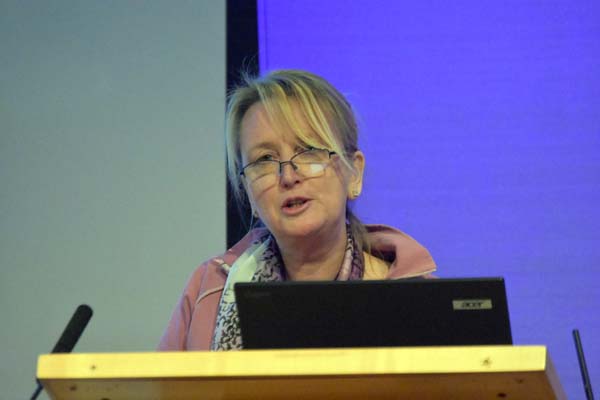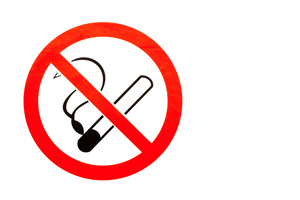Action on Smoking and Health (ASH US) has said that it is time to phase cigarettes out of the US market.
In a press note issued yesterday, the day on which the US Food and Drug Administration announced crackdowns on various tobacco and nicotine-delivery products, ASH focused on the announcement by the FDA Commissioner, Scott Gottlieb, MD, that he intended to begin the process of banning the sale of menthol cigarettes.
‘Menthol was left out of a cigarette-flavoring ban in 2009, and the result is that African Americans smoke menthol cigarettes at a much higher rate – and suffer the consequences – than the general population,’ the note said. ‘But it’s long past time to think about doing away with cigarettes altogether. As Stanford University’s Robert Proctor put it in his book Golden Holocaust, “the cigarette is the deadliest artifact in the history of human civilization”.’
ASH went on to say that the addition of menthol made the first cigarette a person smoked easier on the throat, which made inhaling easier and increased nicotine addiction.
It said that menthol brands had been heavily marketed to African Americans, resulting in nearly nine out of 10 African American smokers using menthol cigarettes.
And it said that cigarettes generally still caused nearly 500,000 deaths in the US annually, over 1/5th of all deaths.
‘As a society, we have become numb to the harm caused by cigarettes, thanks largely to a century-long tobacco-industry public relations campaign to normalize smoking,’ the note said. ‘But take a step back, and imagine a new product coming on the market tomorrow that is highly addictive and deadly when used as intended. It would be removed from the shelves immediately.
‘Ask yourself another question: at what age do I want my kids to start smoking? The answer for nearly everyone is obviously “never”. Most smokers want to quit and wish they had never started. Nearly all made the “choice” to smoke that first cigarette as children; by adulthood, they were already addicted.’
Laurent Huber, executive director of ASH, was quoted as saying that the mass marketing of cigarettes, a highly sophisticated, addictive and defective nicotine delivery device that killed over seven million people globally every year, was an abuse of corporate power and a human rights violation. “Banning menthol is a step in the right direction, but it is time to go one step further and phase cigarettes out of the market to prevent millions of unnecessary deaths,” Huber said.
ASH said the FDA was precluded from banning tobacco sales when it was given authority over tobacco products. ‘But all the states and many local jurisdictions are empowered to end the sale of cigarettes and protect the lives of their citizens,’ the note said. ‘Such a move was politically impossible when we first learned of the health harms caused by smoking – about half of adults smoked. But we’ve made progress in the past 50 years, and driven that figure down to about 14 percent.
“It’s now within reach,” Huber said. “With the stroke of a pen, communities can end the number one preventable cause of death and disease.”
Category: Regulation

Moral challenge laid down

No moral monopoly
The official China Youth Daily (CYD) has called for a change to the monopoly tobacco system operating in China, according to a story in The China Daily.
The story reported that the China National Tobacco Corporation (CNTC) had urged its local branches to try their best to fulfil the annual sales objective of 47.5 million cases of cigarettes, or 2.38 trillion cigarettes, by the end of next month.
But the CNTC’s urgings were opposed by the CYD, which reported that the Chinese Association on Tobacco Control had said it was contrary to the Healthy China 2030 plan and the World Health Organization’s Framework Convention on Tobacco Control, to which China was a signatory country, for a state-owned tobacco enterprise to set an annual sales objective.
The CYD said that it should be relatively easy for China to reduce tobacco use, since tobacco was under state control.
But this was not happening. The size of China’s smoking population had remained unchanged or had increased slightly in the recent past. And annual sales of cigarettes had risen fast since 2016 when they fell to 47 million cases from a historical high of 51 million cases in 2014.
China was said to have 350 million smokers, or 31 percent of the world’s total, and about 740 million ‘second-hand smokers’. Diseases related to smoking caused the deaths of 1.36 million smokers each year, and the deaths of 10,000 ‘second-hand smokers’.
The CYD said that the Healthy China 2030 plan vowed to reduce the size of the country’s smoker population, but given the ‘tobacco corporation’s deployment and growth momentum’ (its net profit in 2016 was 1.08 trillion yuan [$156 billion] or 28 times that of Alibaba), the goal of downsizing the smoking population was mission impossible unless there was a drastic change in how it operated.
‘For example, cigarette packs in China do not bear anti-smoking photos to dissuade people from smoking, and the price of cigarettes is markedly lower in China than in many other countries,’ CYD said. ‘Trying to prevent smoking in public places, even though it is banned, is often greeted with fierce reactions from smokers. And smoking-cessation treatment remains expensive in even public hospitals.
‘Unless there is a change to the monopoly tobacco system, smoking control will remain an uphill struggle.’
FDA plans welcomed
The US Food and Drug Administration’s plans to restrict the availability of tobacco and nicotine-delivery products containing flavors has been generally welcomed.
The FDA yesterday outlined a new policy framework to address what it sees as the ‘central problems’: ‘youth appeal and youth access to flavored tobacco products’ [the FDA deems electronic cigarettes to be tobacco products].
It said it would be taking steps on the following product categories:- ‘Flavored ENDS products (other than tobacco, mint, and menthol flavors or non-flavored products) that are not sold in an age-restricted, in-person location;
- ‘Flavored ENDS products (other than tobacco, mint, and menthol flavors or non-flavored products) that are sold online without heightened age verification processes;
- ‘Flavored cigars;
- ‘ENDS products that are marketed to kids; and
- ‘Menthol in combustible tobacco products, including cigarettes and cigars.’
Companies and organizations have been falling over themselves to welcome the plans insofar that they target reducing the availability of flavored products to young people.
But they are split over the question of menthol combustible cigarettes, with cigarette companies generally setting out their position that there is not enough scientific evidence to support a ban on menthol cigarettes.
Meanwhile, some organizations want the FDA to go further. The president of the American Medical Association, Barbara L. McAneny, MD, said AMA policy called for the FDA to go a step further and prohibit the use of flavoring agents in tobacco products, including e-cigarettes.
New approach needed
The New Nicotine Alliance (NNA) is calling for a new approach by the UK’s public health bodies toward vaping and the consumption of other safer nicotine products.
The NNA, which is a charity concerned with improving public health through a greater understanding of risk-reduced nicotine products and their uses, said in a press note issued today that warring factions in public health were contributing to the confusion and mistrust surrounding effective alternatives to smoking.
‘If the public’s health is to be properly served by state-funded organizations, accurate and impartial information is key,’ it said.
‘Misperceptions are harmful, breed intolerance, and are exacerbated by bans and restrictions on proven safer products.
‘If public health advocates wish to see further reductions in smoking, public health needs to come together and win over hearts and minds.’
The NNA’s call for a new approach toward safer nicotine products will be reiterated today by its chair, Sarah Jakes (pictured), who is speaking at the E-Cigarette Summit at the Royal Society.
The NNA is concerned that the public has been bombarded with ‘less-than-honest propaganda from ideologically-motivated sources on products which carry a reduced risk, and which have contributed to the lowest smoking prevalence rates in the UK’s history’.
“The public need to be able to trust that the information given to us by public health authorities is accurate and complete,” Jakes was due to tell the Summit.
“[T]he vast majority of the public are not scientists, so they go with what they perceive to be a trustworthy source of information. But who can you trust when the authorities and experts are so divided?”
Jakes will highlight the ‘febrile’ political debate currently taking place in the US, where, she says, truth about vaping has been abandoned in favor of moral posturing that serves no positive purpose for US smokers. She will urge campaigners to settle their ideological differences for the benefit of those they are tasked to help.
“The vast majority of vapers don’t advocate, or even identify as vapers,” she will say. “They are simply people getting on with their lives who also happen to vape. This silent majority are mothers, fathers, grandparents, brothers and sisters with ordinary and extraordinary lives to lead but our humanity is often obscured from view when the label of ‘vaper’ is applied.
“As long as the apparent controversy continues, the public will trust only what they see with their own eyes, and what they see is bans, restrictions, warning labels and something that looks like smoking.
“Misperceptions are harmful in more ways than one. They breed intolerance, which supports restrictive policy, which in turn creates more misperceptions and more intolerance. Is it any wonder that many smokers don’t see the point of switching?”
The NNA makes the point that smokers and vapers are not merely numbers in a dataset, or a trend on a graph. They are ‘real people and should not be pawns in a political power game between different factions of the public health community’. A new, more sympathetic approach was required.
“We must never lose sight of the fact that behind every data point is a real person with strengths and weaknesses, desires and ambitions, and that every life is precious,” Jakes will say.
A reasonable question
Writing at reason.com, Jacob Sullum poses a pointed question. Why should adult US smokers pay, potentially with their lives, for the carelessness of convenience store clerks?
He said that the moral logic of the trade-off demanded by the US Food and Drug Administration escaped him.
Sullum, who is a senior editor at Reason magazine, was commenting on the FDA’s proposed efforts to address what it sees as a vaping ‘epidemic’ among young people – efforts that include limiting the flavor options of vaping products sold in most stores to those claimed to be least likely to appeal to the young. Stores that fail to check properly the ages of people buying such products are seen by the FDA as a major supplier to young people.
Critics of the vaping industry, Sullum said, portrayed the flavors that the FDA wanted to ban from stores that admit minors as evidence of a conspiracy to hook the youth of the US on nicotine. The FDA had a more sophisticated understanding of the market but was still far too willing to sacrifice the interests of adult smokers in the name of fighting an ‘epidemic’ of underage e-cigarette use.
Sullum quotes the FDA Commissioner Scott Gottlieb as saying or implying on several occasions that switching adult smokers to vaping could have an unprecedented, positive health impact.
And he says it follows that making e-cigarettes less appealing and less accessible has a public health cost, measured in smoking-related diseases and deaths that otherwise would not have occurred.
Standardized packs coming
Thailand’s Public Health Ministry yesterday approved a draft regulation requiring cigarettes to be sold in standardized packaging, according to a story in The Bangkok Post.
In addition, the regulation will require changes to be made to the compulsory graphic warnings currently included on packs.
The Public Health Minister, Dr. Piyasakol Sakolsatayadorn, said the regulation had been approved by the ministry’s national tobacco control committee, which he chairs.
Under the regulation, cigarette packs would not be allowed to include brand logos, promotional text or non-designated colors.
Piyasakol predicted that Thailand would become the 11th country but the first Asian nation to impose standardized cigarette packaging.
However, he did not say when this might occur.
Piyasakol said also that the pictures that were part of the health warnings currently included on cigarette packs would be changed.
They had been in use for five years and people might be overly familiar with them, reducing their effectiveness.
Hong Kong asked to reflect
Fontem Ventures, the business behind blu® e-vapor products, today submitted to the Hong Kong Chief Executive’s office evidence that vaping can contribute to tobacco harm reduction and potentially improve health outcomes for Hong Kong’s adult smokers.
“We are asking the Hong Kong government to reconsider their proposal for a blanket ban on vaping, which will impact the lives of current adult vapers, and those smokers who may consider switching to a potentially less harmful product,” said Hon Lik, the inventor of the original e-cigarette and a consultant to Fontem Ventures’ research & development team.
“We understand Hong Kong’s cautious stance on vaping and its concern over the reports of vaping by minors in the US,” he said. “Nevertheless, prohibition is likely to be counter-productive, and the evidence from countries including the US and the UK suggests pragmatic regulation of vaping can help accelerate declines in smoking rates among adults.”
In its filing, Fontem said e-vapor devices should be made legal for purchase by adults in Hong Kong, and that adult smokers should be empowered to make informed choices.
"Ludicrous" ban proposed
Tobacco smoking could be banned in town- and city-centers in Wales if Mark Drakeford succeeds in becoming the next first minister, according to a story at bbc.com.
The Welsh Labour leadership candidate has included the plan in his manifesto for the contest.
Drakeford wants also to ban smoking in outdoor areas of cafés and restaurants.
Smoking was banned in enclosed public places in Wales in 2007. It is now banned in cars where children are present. And it is set to be banned in the grounds of schools and hospitals next summer.
Wales would become the only part of the UK to ban smoking in city centres if the Drakeford proposals were implemented.
Drakeford, considered to be the favourite to win the Welsh labour leadership election, tried to legislate for a partial ban on electronic cigarettes in 2016, but the law was binned after members of Plaid Cymru withdrew their support.
His manifesto proposes to ‘extend [the] smoking ban to outdoor areas of cafés and restaurants and city and town centres’.
“It is very important that we press ahead with reducing the level of smoking here in Wales,” Drakeford reportedly told BBC Wales.
But he denied he would want to ban tobacco smoking outright.
“We already have bans on smoking on beaches in parts of Wales,” he said. “This is a proposal to take this further.”
Meanwhile, the UKIP assembly leader Gareth Bennett was quoted as saying: “As health minister, Mr Drakeford led a crusade against vapers, and now he wants to hit smokers by a ludicrous ban on people lighting up in outdoor places such as cafés.”
Little faith in plain packs
An opinion poll published today by the smokers’ campaign group Forest EU reveals that there’s no overwhelming public support for more tobacco control measures in the EU.
The opinion poll conducted by Populus for Forest EU found that 56 percent of respondents agreed that measures to tackle smoking had gone far enough.
It found that of 10 key health objectives, curbing tobacco consumption was seen as the second least important issue for the European Commission’s DG SANTE to focus on.
And it found that only three percent of respondents thought the introduction of standardized tobacco packaging was the most effective way of reducing youth smoking rates. This figure compares with the 52 percent in favor of mandatory education in schools about the health risks of smoking; the 23 percent in favor of harsher penalties for shopkeepers caught selling tobacco to minors; and nine percent in favor of a ban on adults buying cigarettes for children.
“Lobby groups hostile to tobacco consumption are campaigning for the EU institutions and national governments to introduce new rules they believe are fundamental to eradicating smoking,” said Guillaume Périgois, director of Forest EU. “What this poll shows however is that there is relatively little public support for further extreme anti-smoking measures.
“What is similarly clear is that EU voters support a common-sense approach to tobacco control. Regulation should not be made at the behest of taxpayer-funded lobby groups but based on trustworthy, independent evidence.
“A significant number of European adults smoke, and enjoy doing it, and their contribution to society is substantial. The best way for the next European Commission to signal a move away from an excessively bureaucratic approach would be to prioritize actions in the areas that EU citizens clearly see a need.
“The results of this survey show that Forest EU’s positions are representative of those held by smokers in Europe. Like Forest EU, 73 percent of European smokers think tobacco control measures have gone far enough, 47 percent think curbing tobacco use should be DG SANTE’s bottom priority and 80 percent think bars, cafés and restaurants should have the legal option to provide a separate, well-ventilated smoking room.”
Populus interviewed 6,167 adults aged 18+ online in France (1,024), Germany (1,036), Poland (1,040), Romania (1,029), Italy (1,018) and Spain (1,020), with interviews being conducted between May 25 and May 31, 2018. These member states were said to cover 60 percent of the EU population with 310 million citizens and a diversity in smokers’ habits, tobacco control policies and historical factors.
Populus – Attitudes towards tobacco policies in the EU is available here.
Forest EU advocates for the consumer, not the tobacco industry, but is supported by the Confederation of European Community Cigarette Manufacturers (CECCM) whose members are Japan Tobacco International (JTI), British American Tobacco (BAT) and Imperial Brands PLC (IMB), and by the members of the European Smoking Tobacco Association (ESTA). Forest EU’s annual budget in 2018 is €165,000.
It's time to talk
The website for the sixth Global Forum on Nicotine (GFN) is now online.
The conference will be held at the Marriott Hotel, Warsaw, Poland, on 13-15 June 2019.
The conference, whose theme is, It’s time to talk about nicotine, is due to include plenary sessions, symposia, panel discussions, poster presentations, and satellite sessions.
The program committee is inviting abstracts for oral presentations, deadline February 10, and posters, deadline March 31. Abstracts should be submitted online.
The committee will use selected abstracts to construct themed sessions over the coming months. Authors will be informed if their abstracts have been accepted before the posting of the near-final program by April 22.
The organisers are making available up to three scholarships for early-career researchers who are chosen to make oral presentations.
Once again, the International Symposium on Nicotine Technology (ISoNTech) will run alongside GFN18.










